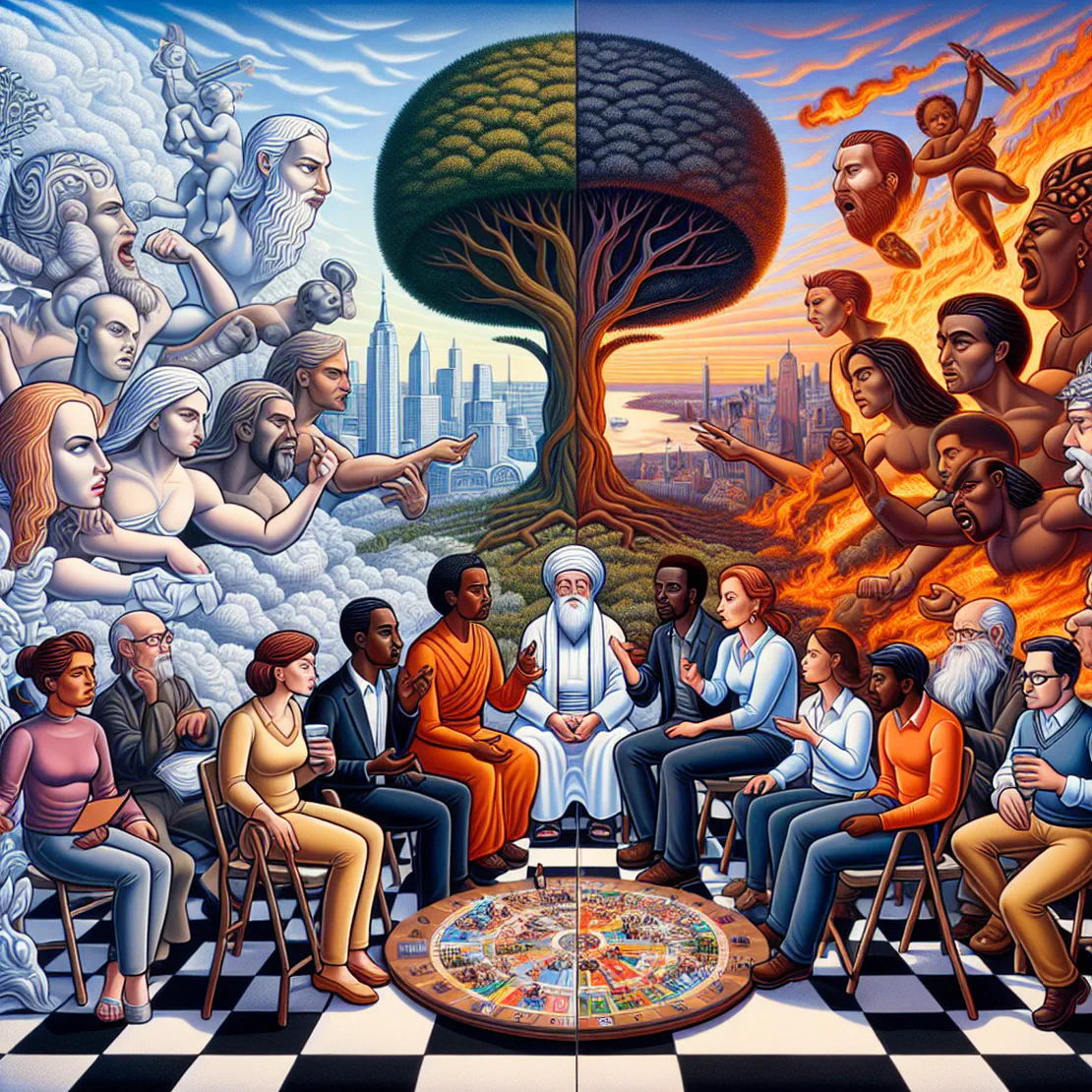
140 Maps Of Meaning 12 Final The Divinity Of The Individual
- The Jordan B. Peterson Podcast
- Meaning , Responsibility , Power , Integrity , Most popular
- October 11, 2020
Table of Contents
At a Glance
Here’s a highlight reel of the episode:
-
Importance of Individual Integrity - “That’s the answer. So, and states that are predicated on that realization are healthy.” This quote highlights the importance of individual integrity as the key to creating healthy societies.
-
Avoiding Overwhelming Responsibility - “Reduce the damn responsibility until it’s tolerable” This statement emphasizes the need to take manageable steps towards personal growth and responsibility, rather than feeling overwhelmed by trying to fix everything at once.
-
The Power of Selflessness - “You could do it with even less self-sacrifice. You could start by fixing only the things that you want to fix” This quote shows how small acts of selflessness can lead to significant positive change and a sense of fulfillment.
-
The Futility of Criticism - “It’s like, fine. Put the cart before the horse. And see how far you get” This statement humorously highlights the futility of criticizing something without being willing to take action or put in the effort required for progress.
-
The Value of Humility - “You’re blind to your own weaknesses, but you’re also blind to your own strengths” This quote emphasizes the importance of humility and self-awareness in recognizing one’s limitations and potential.
-
The Potential for Positive Change - “And maybe we wouldn’t have all these terrible problems then. At least we’d have fewer of them and that would be a start” This statement shows how individual actions can lead to positive change and a better world, even if it’s just a small step at a time.
-
The Need for Personal Growth - “You should find out. You don’t have anything better to do. And there’s nothing in it but good” This quote encourages listeners to focus on personal growth and self-improvement, as this is the key to creating positive change in the world.
What to Do
-
Start with self-reflection and improvement - The speaker suggests that one should first get their own act together, as an individual, to make a positive impact on others.
-
Stop wasting time and orient yourself to the highest good - The speaker advises against unnecessary conflicts and suggests focusing on personal growth and alignment with higher values.
-
Reduce responsibility until it’s tolerable - The speaker recommends starting small, taking manageable steps towards positive change, rather than feeling overwhelmed by trying to fix everything at once.
-
Fix the things you can, and start with what you want to fix - This advice encourages a sense of empowerment and agency, suggesting that even small actions towards improvement can lead to significant positive changes.
-
Give up resentment and hatred; aim for the highest good - The speaker advises against holding onto negative emotions and instead suggests striving for a higher level of personal growth, alignment with one’s values, and contribution to the greater good.
What to Get
-
Sermon on the Mount- The Bible - Amazon - To understand the parallel between the Sermon on the Mount and the Pinocchio story
-
Pinocchio by Carlo Collodi - Amazon - To analyze the structure and themes of the story in relation to human development
-
Harry Potter by J.K. Rowling - Amazon - To observe the Quidditch game and understand the game within a game concept
-
Maslow’s Hierarchy of Needs - To understand the basic biological necessities and constraints on human interpretations
-
The Mismeasure of Man by Stephen J. Gould - Amazon - To explore the concept of different magisteriums in religion and science
-
Soviet System and Maoist System - To compare and contrast different ethical structures for study and analysis
Summary
In this thought-provoking podcast episode, the speaker delves into the complexities of human existence and offers a unique perspective on how to overcome life’s challenges. The conversation begins with a critique of the tendency to criticize others without truly understanding their perspectives. The speaker uses the analogy of a termite destroying a temple, highlighting the futility of such an approach.
The discussion then shifts to the concept of the “path of the hero,” which is often misunderstood or overlooked in today’s society. The speaker emphasizes the importance of living with integrity and taking personal responsibility for one’s actions. This idea is central to the episode, as the speaker argues that individuals have the power to create positive change in the world.
One of the most interesting points made in this episode is the notion that humans are blind to their own strengths and weaknesses. The speaker suggests that by acknowledging and accepting our limitations, we can begin to work towards becoming better versions of ourselves. This, in turn, can lead to a more harmonious and peaceful community.
The speaker also touches on the idea that there is no one-size-fits-all solution to life’s problems. Instead, they propose that individuals focus on making small, incremental changes that can collectively lead to significant positive impact. By taking ownership of our actions and commitments, we can create a ripple effect of goodness in the world.
The episode concludes with a message of hope and empowerment. The speaker encourages listeners to take responsibility for their lives, to aim for the highest good, and to manifest it in the world. This requires giving up resentment and hatred, which are often misguided responses to life’s challenges. By letting go of these negative emotions, we can create space for love, compassion, and understanding to flourish.
Overall, this podcast episode offers a refreshing and insightful perspective on how to navigate life’s complexities. It encourages listeners to take personal responsibility, strive for integrity, and work towards creating positive change in the world.


